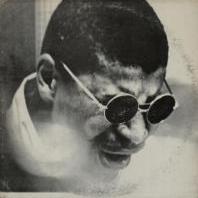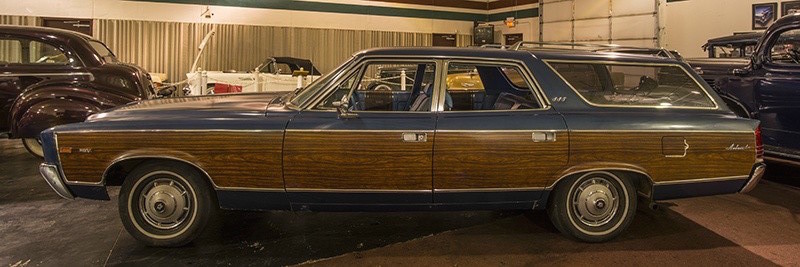-
Posts
5,203 -
Joined
-
Last visited
Content Type
Profiles
Forums
Events
Blogs
Everything posted by Late
-
Is there a recommendable single disc of Hines' earlier piano solo work? I'm listening to the Hines Hep CD right now. Brilliant.
-
My first exposure to Kelvyn Bell. Great solo later in the program. Denis Charles seems like a halfway point between Art Blakey and Ed Blackwell. I've always liked his playing, and it's great to see footage of how he used the kit. Motörhead
-
Any fans of Peter Kuhn's work on clarinet? Check out this video from the 70's. Great Denis Charles therein.
-
Of the four Black Jazz compilations that Snow Dog put out around 2013 (the others were by Gilles Peterson, DJ Muro, and DJ Mitsu), this one, in my opinion, is the best. Parrish's mix really works, and the way he overlaps some of the tracks is pretty artistic. This set initially had two discs, one mixed and one unmixed, but now it seems that only the mixed version is available for sale. Don't worry though — I actually think it's the better one of the two. Three Awakening tunes in a row! If you find this disc for a decent price, carpe! It clocks in at just over 77 minutes.
-
Which cover are you thinking of? or The first cover looks like it could be from the mid-50's? I've always liked the original "Croscrane" from this album.
-
This is an excellent debut recording. At first I thought Riley was simply copping Gonsalves and Webster, but no. He puts his own spin on the breathy tenor approach. And I usually don't care for the obligatory soprano double on a few tunes, but this album slapped me straight. I've never quite heard soprano playing like this, where Riley's soprano almost sounds like a C-melody saxophone. Bizarre, and really nice. (There's also one tune with alto clarinet.)
-
1980, Berlin. What a killer quartet:
-
Jazz Connoisseur Series I hope this series continues, even though it seems an anomaly in 2017. It'll be interesting to see what gets chosen for reissue next. It would be nice if the Fats Sadi-led Vogue session saw reissue (with its original cover art) in this series.
-
My first exposure to Ashby, actually as a little kid, was this album: Perhaps the hippest X-mas album (if that's possible) I've ever heard. Ashby has short, but very funky, solos throughout the album. The whole thing's on YouTube, and the album itself was just recently remastered and reissued on compact disc.
-
Doing some research on Gary Karr, I came upon this — Karr & Richard Davis: And, different context altogether, Richard Davis with Ted Dunbar:
-
Listening right now to: • Walter Davis: Scorpio Rising (highly recommended!) — Santi Debriano on bass adds a lot to this session. Also recommend: • Sadik Hakim: Witches, Goblins, etc. • Paul Bley: Questions • Chris Byars Octet: Lucky Strikes Again (an excellent homage to Thompson)
-
In 2016, Silver Saucer Records reissued on compact disc The Damned's first studio recording. Kevin Gray (who's remastered Blue Note titles for Music Matters and Acoustic Sounds) did the remastering. There are now at least three different digital editions of this record. This is the one to own. Sound is not compressed, has depth, and ... a punk album sounds good! If you know this record and like it, look for the Silver Saucer edition. A half hour of punk bliss.
-
Great recommendations — thanks, and keep them coming! Some of the cellists listed above are entirely new to me. A few questions/comments: • Aldo Parisot — Is the Kodaly/Bach disc only available as a CD-R? Amazon gives me that impression. (Are you just as well off purchasing the mp3's?) • Paul Watkins — Thanks for bringing him to my attention. Raphael Wallfisch has been making a parallel series of British music for cello (mostly reissued on Naxos) that I would recommend. Wallfisch's recordings on Nimbus are ... extensive. • Antonio Janigro — That Beethoven with Zecchi is really nice! I'm supposing it's not available digitally anywhere. Does anyone here have Janigro's Bach Suites on Doremi? Worth the investment? I'm kind of overloaded on versions of the Suites, but I'm always open to one more. Three more recommended cellists to add to the list: • György Déri — These are all works for solo cello. Look at that list of composers! When Ligeti is the most recognizable name (well, that'd be my guess), you know you're in for some surprises. Déri has an appealing dark sound (that I always look/listen for in cellists). • Esther Nyffenegger — Has anyone here heard, or heard of, the Swiss cellist Esther Nyffenegger? The (cheaply-titled) "Cello Jewels" is a 7-disc affordably-priced box set that contains standard sonata repertoire along with some lesser known works for cello and piano. Nyffenegger's Beethoven can stand alongside much more famous recordings with ease. Her Brahms, I'd say, is superior to many more familiar recordings. Nyffenegger studied with Casals around the same time that Jacqueline du Pré did, and while du Pré's star shone much more brightly, Nyffenegger quietly made excellent, and contemporaneous, recordings. • Wen-Sinn Yang — Piatti is to the cello what Paganini is to the violin. This is quite possibly the most virtuosic cello playing I have ever heard. Yang is an utterly flawless cellist, never playing out-of-tune, and always paying attention to the finest details of articulation and phrasing. I suspect that some listeners would find his playing somewhat calculated, and perhaps that's true, but one thing (I'd say) is also true: Yang isn't flashy, and his playing doesn't bear the sometimes off-putting qualities of the virtuoso. Yang has also recorded Kodaly, Cassado, and various other virtuoso works.
-
There's already a thread here for the Bach Cello Suites, and, expanding on the good recommendations there, I thought I'd solicit recommendations for music for cello in general. What music for cello (sonatas, concerti, unaccompanied, chamber ensemble, etc.) do you particularly like? I'll start with a disc I'm listening to right now: This Tortelier recording really clicks for me. It doesn't try to be historically informed (at least to my ears), the harpsichord notwithstanding. The recorded sound from 1965 is superb.
-
Still canceled as of today.
-
Nicely said. I think you'd like/appreciate Gilles Peterson's Ra comp mentioned in the other concurrent Ra thread. I got it fairly cheap and originally thought: "It'll be nice supplemental Ra." I was wrong. It is a very good comp indeed. The remastering is so good that I actually would recommend it as a starter for those wanting to check out Ra.
-
Instead, this is a good read.
-
You might want to consider Art Yard In A Box. Seven discs at a fair price. Plus this!
-
Forgotten I'd started this thread almost thirteen (!) years ago. I was a little too enthusiastic at the time. Still a pretty good record though.
-

What Classical Music Are You Listening To?
Late replied to StarThrower's topic in Classical Discussion
Spinning this in the mornings: Recommended. And affordable new! Várdai is not a household name, but he carries off the Variations with finesse and a burnished sound. -
I'd been wanting to put together a twenty song comp of early Cash favorites recently, so I put this playlist together: 1. Cry, Cry, Cry 2. I Walk The Line 3. Get Rhythm 4. There You Go 5. What Do I Care? 6. Big River 7. Guess Things Happen That Way 8. All Over Again 9. Run Softly, Blue River 10. That's All Over 11. That's Enough 12. Tennessee Flat-Top Box 13. I Still Miss Someone 14. Ring of Fire 15. The Ballad of Ira Hayes 16. Orange Blossom Special 17. It Ain't Me Babe 18. Were You There (When They Crucified My Lord) 19. Sunday Morning Comedown 20. Flesh and Blood Then I needed a twenty song contemporaneous (well, a handful of years later) Willie Nelson playlist, but that's another thread.
-
Gilles Peterson was given the opportunity to work with Sun Ra's catalog, and this 2-disc anthology does not disappoint. It has to be the best sounding Ra comp I've ever heard. The music selection ranges from 1957-1980, and though Ra fans will have a lot of this music already, there are four previously unreleased (live) tracks, which is a nice touch. A search here didn't yield any prior thread on this comp, but there might be one. Anyone else purchased this set? I didn't think I'd like this Ra compilation as much as I do, so I thought I'd share the recommendation here. A big . Tracklist here. (Scroll down.)
-
"Oh, right. Well, in order to get to our patio for the barbecue, you have to turn around and go back down the hallway, out the front door, down the steps, across the driveway, climb up the embankment, and then straddle the fence." Conversely: "Yeah. I don't know why we put those glass doors there either."
_forumlogo.png.a607ef20a6e0c299ab2aa6443aa1f32e.png)
